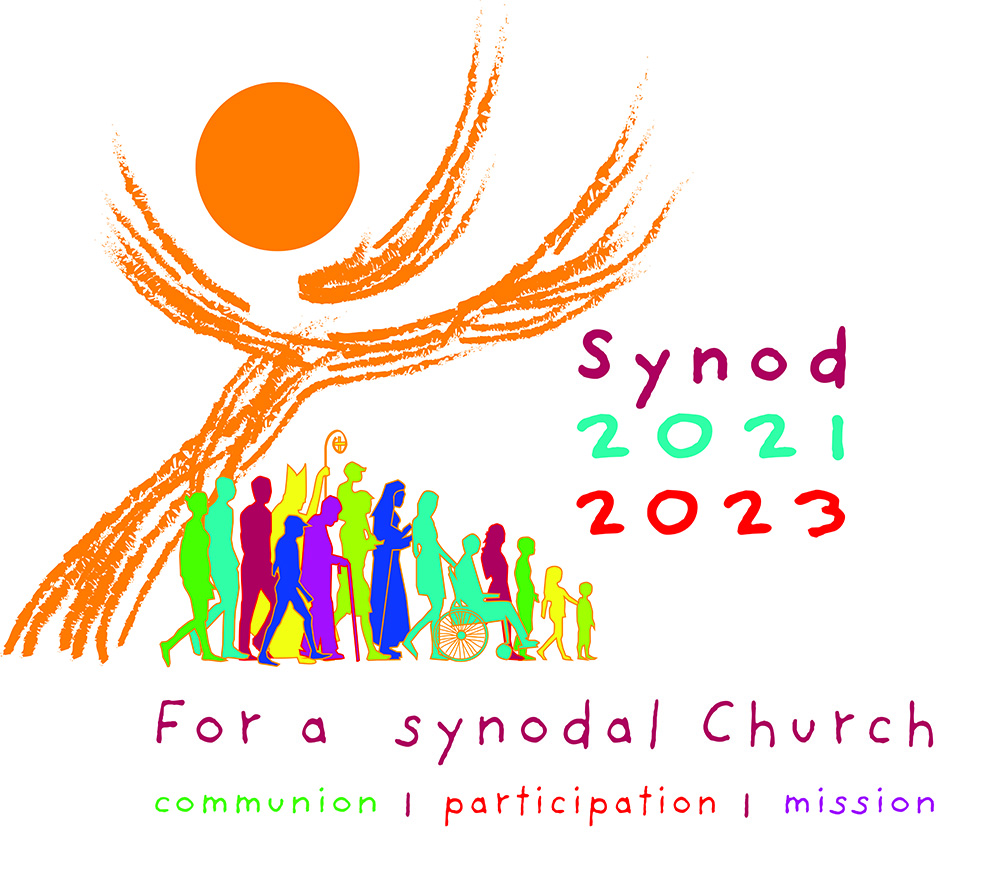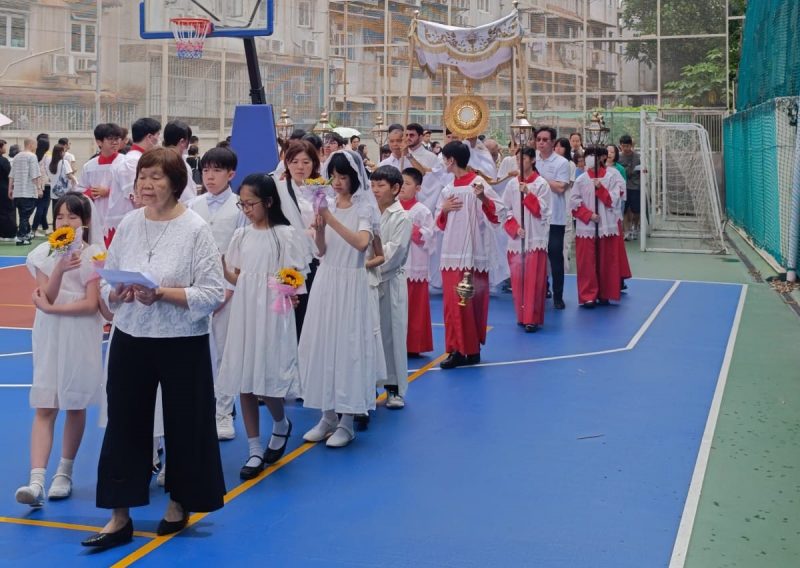Marco Carvalho
The diocesan phase of the XVI Ordinary General Assembly of the Synod of Bishops – the first ever decentralized Synod – begins this Saturday in the Cathedral of the Nativity of Our Lady, with the celebration of a Solemn Mass, followed by a meeting between Bishop Stephen Lee and the local parish priests. Dedicated to the theme “For a Synodal Church: Communion, Participation and Mission,” the process which is just now beginning, looks to hear from voices on the margins of the Church and Pope Francis wants every Catholic to have a word.
The Bishop of Macau will preside this Saturday, at the Cathedral of the Nativity of Our Lady, the Solemn Mass which marks the beginning of the diocesan phase of the first decentralized Synod in the history of the Catholic Church. Right after the Eucharist, scheduled for 3 PM, Bishop Stephen Lee Bun-sang will meet with the parish priests and members of the diocesan curia. The meeting should serve to discuss and plan how the synodal procedures will develop in East Asia’s oldest Diocese.
The synodal process was opened last Sunday by Pope Francis. The Synod aims to question the Church about its own synodality. The Diocese of Macau, Father Daniel Ribeiro told O Clarim, is committed to complying with the procedures the Holy Father requested of dioceses around the world as part of the first stage of the General Synod of Bishops. The Brazilian priest says the greater involvement of the faithful in the deliberation of the issues that challenge the Church should be seen as a decisive moment, even though the process may represent a major challenge for Macau and most of the Dioceses: “The opening of the Synod in Macau will take place on Saturday, with a Solemn Mass, presided over by the Diocesan Bishop. This Mass will be held at 3 PM and after the Mass there will be a meeting between the Bishop and the parish priests, so that the development of the synodal works in the Diocese can be coordinated. There will certainly be a special prayer, but I am not aware of the details regarding the liturgy,” Father Daniel Ribeiro explains. “The main challenge in Macau is to coordinate the entire process. The Diocese will need to gather a lot of opinions, process a lot of information and until all this is systematized, until this information reaches the Vatican, we have a lot of work ahead of us. Time will tell to what extent this is a valid process, but the idea is very positive,” the Dehonian missionary told O Clarim.
Dedicated to the theme “For a Synodal Church: Communion, Participation and Mission,” the Synod of Bishops will have its closing session in October 2023. The process that began last Sunday in the Vatican, Father Jijo Kandamkulathy claims, is one of the most crucial moments of Pope Francis’ pontificate, as it might open the path to a profound renewal and transformation of the Catholic Church: “This is a crucial moment. Pope Francis recognizes that more than anyone, I believe. Since the Second Vatican Council, with the changes in social communications, networking, ideological and political polarization, the climatic conditions, a crucial juncture has emerged. The Pope, as a keen observer of the movements of the world, has identified this as a Kairos, a significant moment in the life of the Church,” the current head of the Macau subsidiary of the Claretian Publications told O Clarim.
Delivered in September, the preparatory document of the XVI General Synod of Bishops warns that the Catholic Church must face challenges and problems such as its lack of internal faith, corruption and “the suffering that minors and vulnerable people experienced due to to sexual abuse” committed by the clergy.
The procedures now initiated by Pope Francis should put the Catholic Church on the verge of a process of renewal that many see as unavoidable, with Catholics and members of the clergy being invited to face their own ghosts and limitations: “The consultation process will be very painful in some dioceses, especially in places where such scandals have been brought out in public glare. The Church has very proactively listened to the grievances of the victims. We will need divinely inspired leaders to listen to them even more. Such listening will have the surgical effect of removing a cancerous tumour in the community. They have to be faced squarely and solutions found,” the Claretian missionary claims. “This renewal is inevitable if the Church wants to be what Jesus Christ intended, capable of reading the signs of the times and responding to them with divine creativity. Well, there is a possibility to avoid such renewals and poise like a self-righteous Pharisee. But, with that, the Church will turn out to be an irrelevant museum piece that only needs conservation and people who look at it as if in the glass cage of the museum,” the Indian priest claims.
At the inaugural Mass of the Synod of Bishops, held last Sunday, Pope Francis proposed a “non aseptic” Church, saying that it should be aware of the reality that surrounds it. The pontiff’s appeal, Father Jijo acknowledges, may not be evenly accepted among all the Catholics – and generate disillusionment among dissonant voices – but more than uniformity, the synodal process that is now beginning must seek to generate communion: “The Synod concentrates on communion rather than uniformity. In our times, individuals are empowered and look for personal expressions of faith. Uniformity often challenges and blocks personal and local expressions of practicing faith. Uniformity can create discontented members that will finally retain a body of the Church, but not its spirit. Communion encourages differences in expressions and commonality in essentials,” Father Kandamkulhaty sustains.


 Follow
Follow


